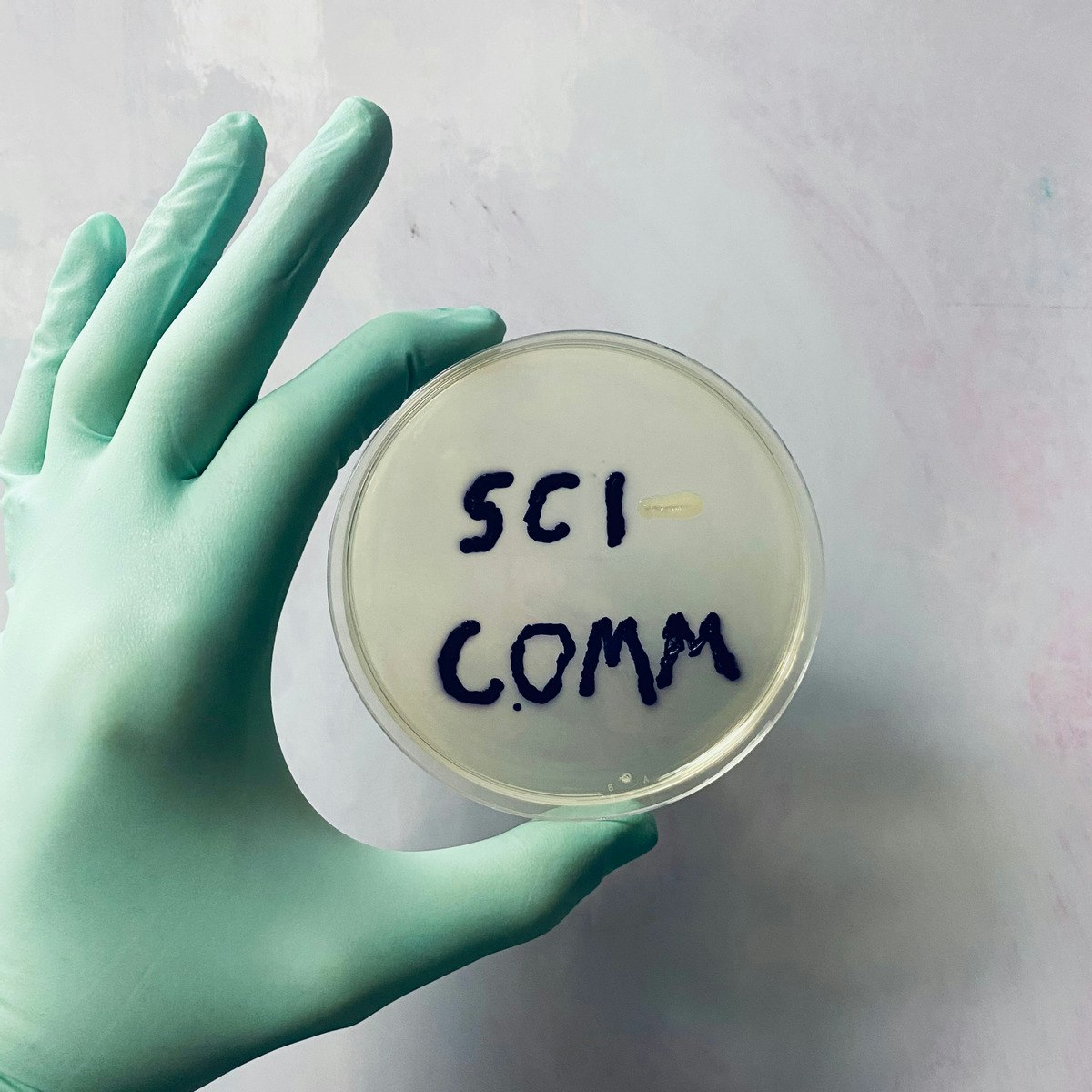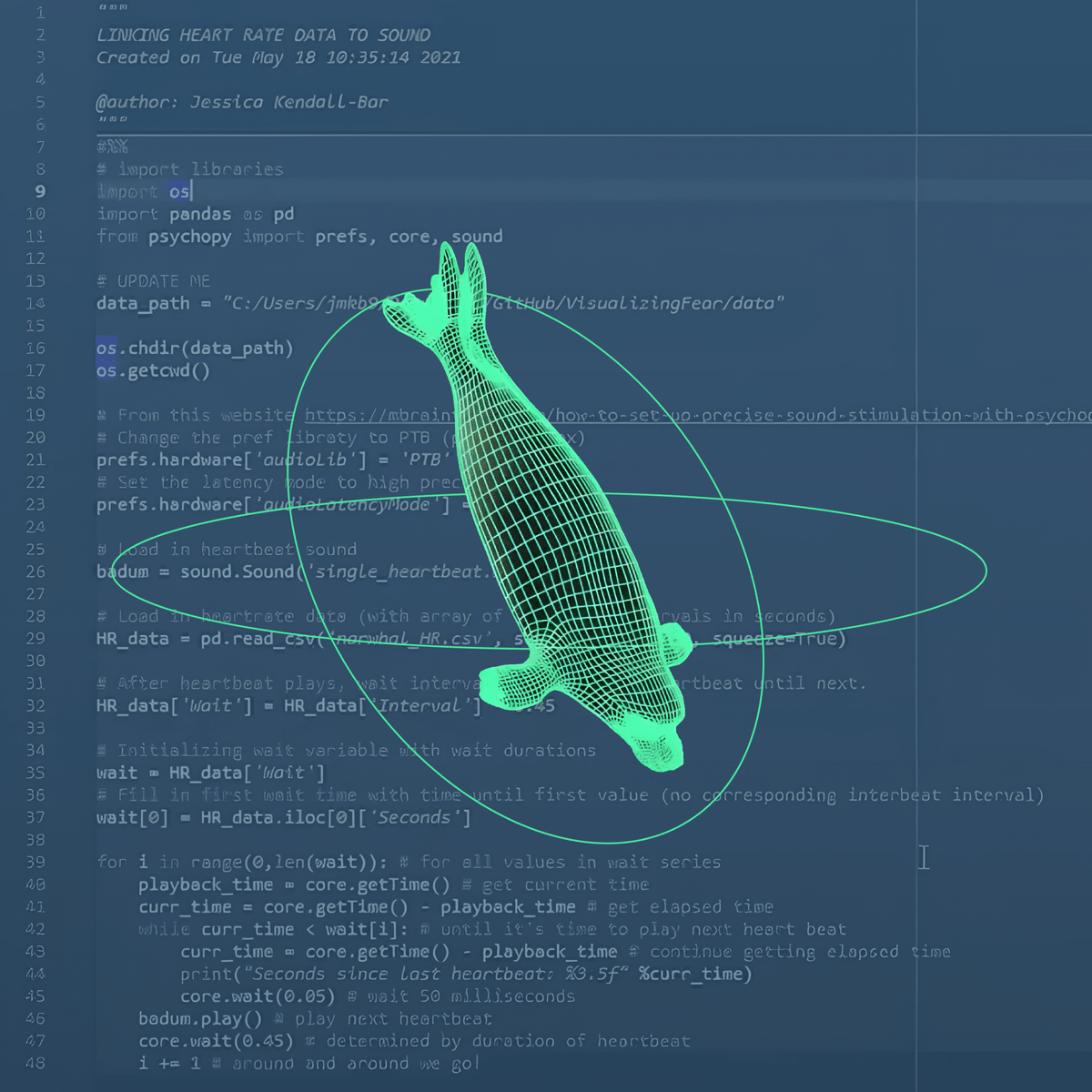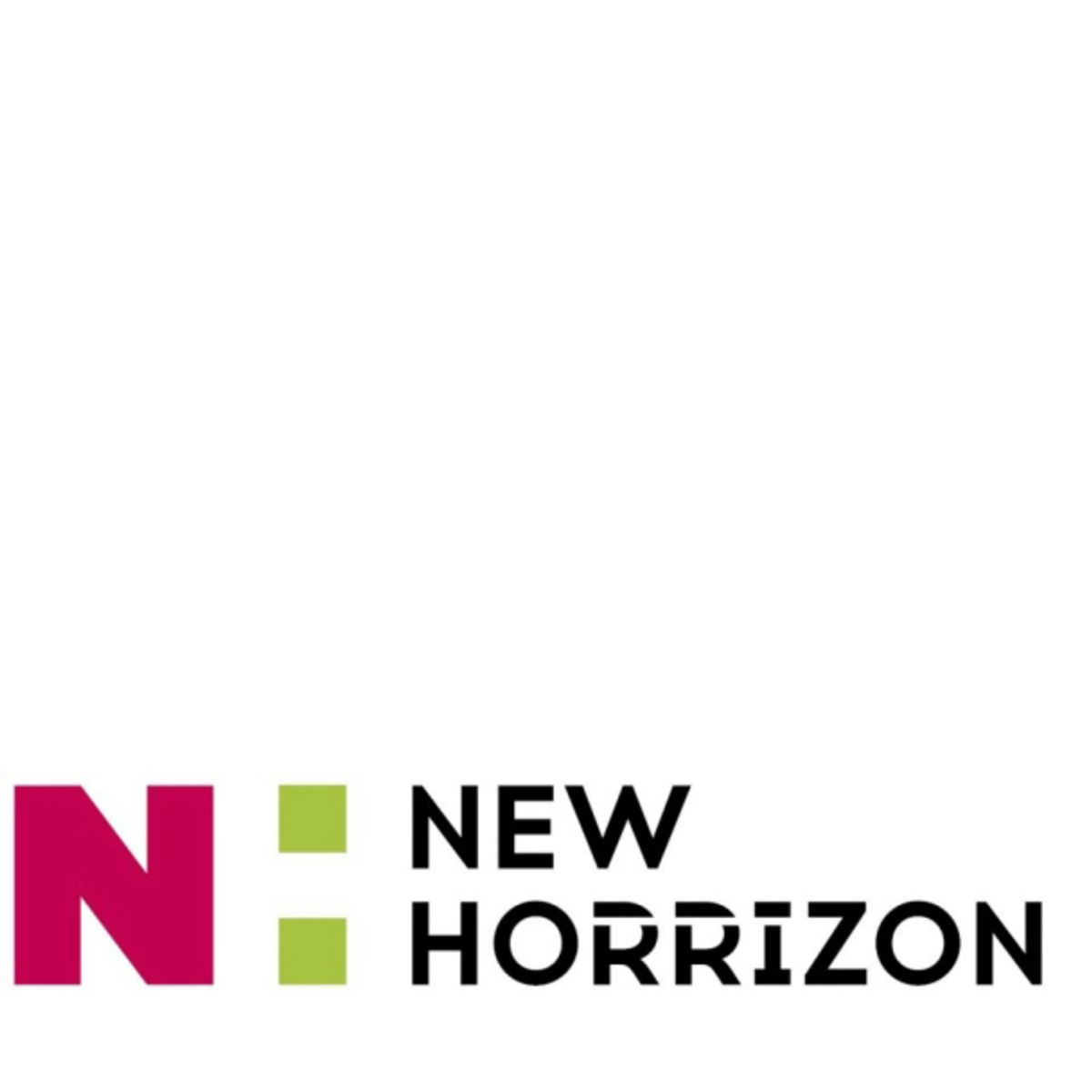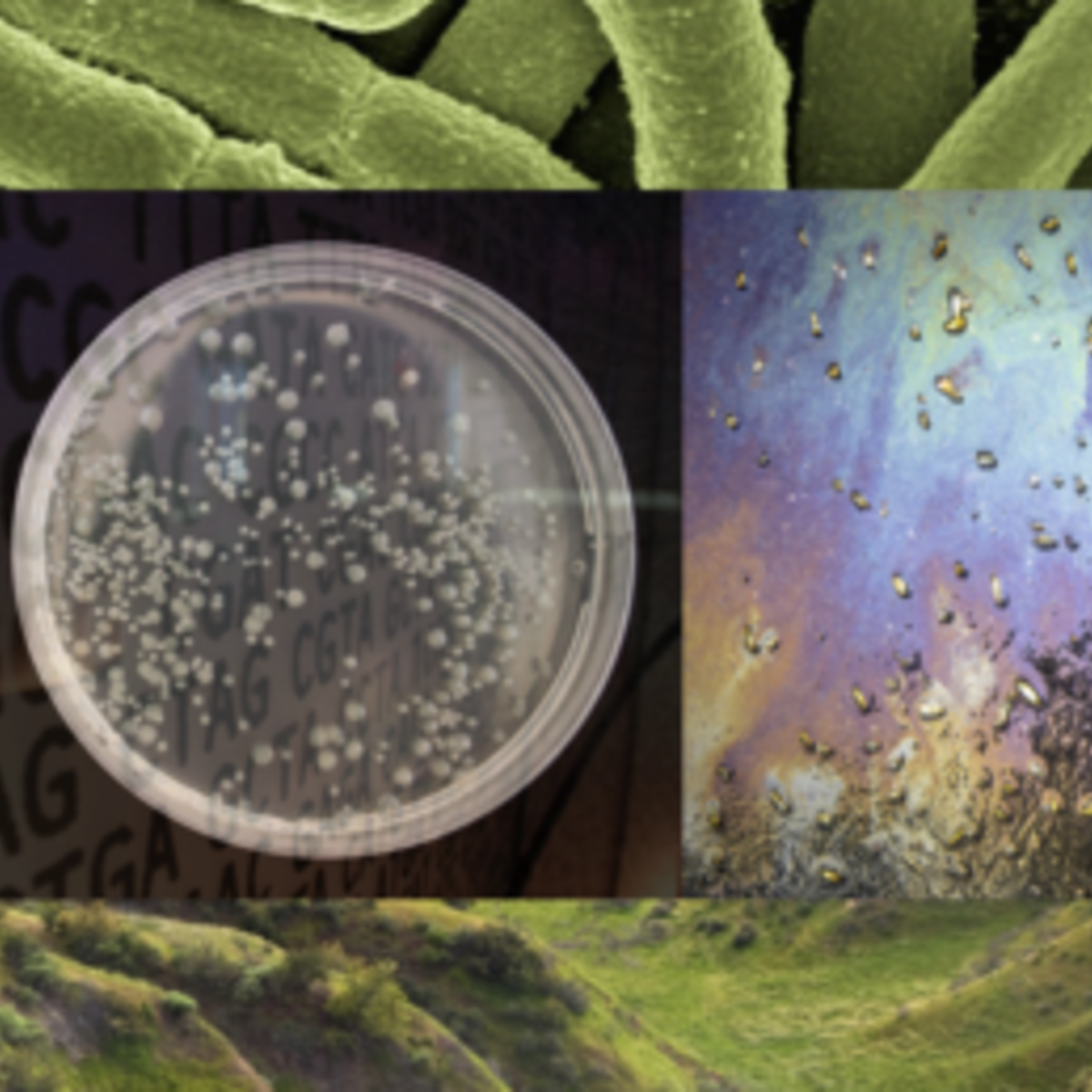Science Communicator
Navigating the World of Science Communication: A Career Guide
Science Communication is the practice of informing, educating, and raising awareness of science-related topics. It involves bridging the gap between complex scientific research and various audiences, including the general public, policymakers, and other non-specialist groups. Science communicators translate technical jargon and intricate concepts into understandable and engaging narratives, fostering a greater appreciation and comprehension of science and its relevance to everyday life.
Working as a science communicator can be incredibly rewarding. You might find excitement in transforming dense research papers into compelling stories that captivate readers or viewers. There's also the satisfaction of empowering people with knowledge, enabling them to make informed decisions about health, technology, and the environment. Furthermore, collaborating closely with researchers at the forefront of discovery offers a unique window into the world of innovation.
Overview of Science Communication
This field plays a critical role in modern society. By making science accessible, it helps demystify research and combat misinformation. It ensures that scientific advancements are not confined to laboratories but are shared widely, contributing to public discourse and informed policy-making.
Defining the Field and Its Scope
Science communication encompasses a wide range of activities aimed at disseminating scientific knowledge and fostering dialogue about science. Its scope extends beyond simply reporting findings; it includes explaining the scientific process, contextualizing research within broader societal issues, and facilitating public engagement with science.
The field draws upon principles from communication studies, journalism, education, and the specific scientific disciplines being communicated. It values clarity, accuracy, and engagement, ensuring that information is not only understood but also resonates with the audience's interests and concerns.
Ultimately, science communication seeks to cultivate a science-literate society where individuals can understand the implications of scientific developments and participate meaningfully in discussions about science and technology.
To grasp the foundational ideas behind scientific inquiry and its place in the world, exploring the philosophy and nature of science can be beneficial.
Key Roles: Translating Complex Concepts
A central role of a science communicator is that of a translator. They take intricate scientific data, methodologies, and theories and reframe them using language, analogies, and formats appropriate for specific non-expert audiences. This requires a deep understanding of the science itself, combined with strong communication skills.
This translation process involves more than simplification. It requires identifying the core message, understanding the audience's background knowledge and potential misconceptions, and choosing the most effective medium—be it writing, video, podcast, or interactive exhibit—to convey the information accurately and engagingly.
Effective communicators anticipate audience questions and potential areas of confusion. They strive to present information in a way that is not just understandable but also relevant and memorable, connecting scientific concepts to the audience's lives and interests.
These courses delve into the nuances of communicating science effectively, addressing trustworthiness and modes of delivery.
Importance in Bridging Gaps
Science communicators act as vital intermediaries. They connect the scientific community, often perceived as insular, with the broader public, policymakers, industry leaders, and other stakeholders. This connection is crucial for fostering trust in science and ensuring its societal relevance.
By facilitating understanding, science communicators help policymakers make informed decisions based on scientific evidence. They also enable the public to engage critically with science news and participate in debates about issues like climate change, public health, and technological innovation.
Furthermore, effective communication can inspire the next generation of scientists and researchers. It highlights the excitement of discovery and the positive impact science can have on the world, encouraging young people to pursue STEM education and careers.
These resources explore the societal context and impact of science.
Historical Evolution of the Field
Science communication is not a new phenomenon, though its formal recognition as a distinct field is relatively recent. Historically, figures like Galileo Galilei and Charles Darwin engaged in forms of science communication by writing for broader audiences beyond their immediate peers.
The 20th century saw the rise of popular science magazines, radio programs, and television documentaries, significantly expanding the reach of science communication. Figures like Carl Sagan, through his television series "Cosmos," brought the wonders of the universe into millions of homes, setting a high bar for engaging and accessible science storytelling.
The digital age has further revolutionized the field, introducing new platforms like blogs, podcasts, social media, and interactive websites. This has democratized science communication, allowing more voices to participate but also creating challenges related to accuracy and misinformation.
Key Responsibilities of a Science Communicator
The day-to-day work of a science communicator is diverse, blending scientific understanding with creative communication techniques. Responsibilities vary depending on the role and organization, but several core functions define the profession.
Translating Technical Information
A primary task is deciphering complex scientific information—research papers, technical reports, data sets—and translating it into language that is clear, accurate, and accessible to target audiences. This involves stripping away jargon without sacrificing essential meaning.
This translation requires not only strong writing and editing skills but also the ability to grasp the fundamental scientific concepts involved. Communicators must ensure their simplified explanations remain faithful to the original research and avoid introducing inaccuracies.
They often work closely with scientists to verify the accuracy of their interpretations and ensure the key messages are conveyed correctly. This collaborative process is essential for maintaining scientific integrity.
Courses focusing on literacy and understanding scientific concepts are crucial for this role.
Content Creation: Diverse Formats
Science communicators produce content across a variety of media. This can include writing articles for websites, magazines, or newspapers; creating scripts for videos or podcasts; developing content for social media platforms; designing museum exhibits; or writing press releases and informational brochures.
The choice of format depends on the target audience and the communication goals. A communicator might create a short, engaging animation to explain a concept on social media, write an in-depth feature article for a science magazine, or develop an interactive display for a science center.
Mastery of different communication tools and techniques is essential. This includes writing skills, visual design principles, audio/video production basics, and an understanding of how different platforms function and reach audiences.
Developing skills in various communication modes is vital for versatility.
Public Engagement Activities
Many science communicators are involved in direct public engagement. This might involve organizing or participating in science festivals, giving public talks or presentations, running workshops for schools or community groups, or interacting with the public through museum exhibits or science centers.
These activities aim to foster a two-way dialogue about science, allowing the public to ask questions, share perspectives, and interact directly with scientific concepts and sometimes even researchers themselves. It's about creating experiences that spark curiosity and encourage learning.
Effective public engagement requires strong interpersonal and presentation skills, the ability to think on one's feet, and a passion for making science exciting and relevant to diverse audiences. It often involves tailoring activities to specific age groups or interest levels.
These courses focus on engaging the public and understanding audience interaction.
Collaboration with Researchers and Institutions
Science communicators often work closely with scientists, researchers, engineers, and subject matter experts. They might interview researchers about their work, collaborate on grant proposals to include communication plans, or help research teams share their findings more broadly.
They also frequently work within institutions like universities, research labs, government agencies, museums, or non-profit organizations. In these settings, they help shape the institution's communication strategy, manage media relations, and ensure consistent and accurate messaging about the institution's scientific activities.
This collaborative aspect requires strong teamwork skills, the ability to understand different perspectives (scientific vs. communication), and diplomacy in navigating institutional structures and research priorities.
Understanding responsible research practices is helpful when collaborating within institutions.
Formal Education Pathways
While passion and strong communication skills are essential, formal education can provide a structured foundation for a career in science communication. Various academic routes can lead to this field, catering to different interests and career goals.
Undergraduate Degrees
There isn't one single "correct" undergraduate degree. Some individuals pursue degrees in journalism or communications with a focus or minor in science writing or a specific scientific field. This path emphasizes communication techniques and media practices.
Alternatively, many successful science communicators hold undergraduate degrees in a STEM (Science, Technology, Engineering, Mathematics) field. They supplement their scientific training with courses in writing, public speaking, or communication, or gain experience through extracurricular activities like science blogging or volunteering.
A strong foundation in a scientific discipline provides credibility and a deeper understanding of the subject matter, while a communications background hones the skills needed to convey that knowledge effectively. Combining elements of both through double majors, minors, or elective coursework can be highly beneficial.
Graduate Programs in Science Communication
For those seeking specialized training, numerous universities offer Master's degrees or graduate certificates specifically in science communication, science journalism, or related fields. These programs provide advanced coursework in communication theory, writing techniques, multimedia production, public engagement strategies, and the social context of science.
Graduate programs often include practical components like internships, portfolio development, and capstone projects, providing hands-on experience and professional connections. They delve deeper into the ethics and challenges of communicating science effectively and responsibly.
These specialized programs can be particularly valuable for those transitioning from a purely scientific background or those aiming for leadership roles in science communication.
These books offer insights into the practice and societal role of science communication, often covered in graduate studies.
PhD Routes and Research Integration
While not typically required for most science communication roles, a PhD can be an asset, particularly for those wishing to communicate complex research from a position of deep expertise or work in academic settings that blend research and communication.
Some PhD programs in STEM fields are increasingly incorporating science communication training or opportunities. Additionally, some researchers pursue communication activities alongside their research, contributing to blogs, public talks, or policy briefs based on their expertise.
A PhD provides rigorous research training and deep subject matter knowledge, which can be invaluable for communicating cutting-edge science accurately. However, the time commitment is substantial, and it's not the standard pathway for a communication-focused career.
Completing a PhD often involves extensive writing and presentation, skills transferable to science communication.
Certification Programs and Workshops
Beyond formal degrees, various organizations offer shorter certification programs or workshops focused on specific science communication skills. These can cover topics like science writing, data visualization, podcasting, social media strategy, or public speaking.
These shorter programs are excellent options for professionals looking to upskill, individuals exploring the field, or students wanting to supplement their degree programs with practical training. They offer targeted learning experiences and can be more flexible and accessible than full degree programs.
Many universities, professional societies (like the American Association for the Advancement of Science or AAAS), and specialized training centers offer such workshops and certificates, both online and in person.
Online Learning and Skill Development
The rise of online learning has opened up numerous pathways for acquiring the skills needed for science communication, complementing or even substituting for traditional education. Platforms like OpenCourser aggregate thousands of courses, making it easier than ever to build a tailored learning plan.
For those exploring a career change or seeking to enhance their skills, online courses offer flexibility and accessibility. You can learn at your own pace, focusing on specific areas like digital media, writing, or visualization, often at a lower cost than traditional programs. This route requires self-discipline but allows you to directly target the skills most relevant to your desired career path.
Remember, while online courses provide valuable knowledge, practical application is key. Supplement your learning with real-world projects to build a portfolio and demonstrate your capabilities to potential employers. Don't be discouraged if the learning curve feels steep; breaking down complex skills into smaller steps and celebrating milestones can help maintain motivation.
Digital Storytelling and Multimedia Production
In today's media landscape, science communication often involves more than just text. Skills in digital storytelling—using video, audio, animation, and interactive elements—are increasingly valuable. Learning the basics of video editing, podcast production, graphic design, and web development can significantly enhance your versatility.
Online courses can teach the fundamentals of multimedia software (like Adobe Creative Suite or open-source alternatives) and the principles of effective visual and auditory communication. Understanding how to craft compelling narratives using different media is a crucial skill.
Focus on learning how to choose the right medium for the message and the audience. A complex biological process might be best explained with an animation, while a researcher's personal journey could make a compelling podcast episode.
These courses offer training in multimedia techniques relevant to science communication.
Science Writing Fundamentals
Clear, concise, and engaging writing remains a cornerstone of science communication. Online courses cover everything from basic grammar and style to advanced techniques for writing different formats, such as news articles, feature stories, blog posts, press releases, and scripts.
Key skills include structuring arguments logically, explaining complex ideas simply without being simplistic, engaging the reader with strong openings and closings, and adapting tone and style for different audiences and platforms. Learning how to interview experts effectively is also often covered.
Practice is essential. Many courses include writing assignments and peer feedback, which are invaluable for honing your craft. Consider starting a personal blog or contributing to online science publications to build experience.
These courses specifically target the skills needed for effective writing in scientific contexts.
Data Visualization Techniques
Science often involves complex data sets. The ability to present data visually in clear, accurate, and compelling ways is a highly sought-after skill. Data visualization transforms numbers into understandable charts, graphs, infographics, and interactive displays.
Online courses teach the principles of good visualization design, including choosing appropriate chart types, using color effectively, and avoiding common pitfalls that can mislead audiences. They also often cover specific tools, ranging from spreadsheet software like Excel to specialized libraries like D3.js or software like Tableau.
Effective data visualization combines analytical understanding with design sensibility. The goal is not just to make data look pretty, but to reveal insights and tell stories hidden within the numbers.
Learning data visualization tools and techniques is crucial for modern science communication. These courses provide hands-on training.
Building Portfolios Through Independent Projects
Regardless of your learning path, a strong portfolio showcasing your skills is essential for landing a job in science communication. Online learning provides the flexibility to work on independent projects that demonstrate your abilities.
Consider starting a science blog, creating a YouTube channel explaining scientific concepts, developing a podcast series featuring interviews with researchers, or designing infographics based on recent studies. Choose topics that genuinely interest you and allow you to practice the skills you're learning.
Use platforms like OpenCourser not just for finding courses, but also for exploring topics via the Browse page or discovering related careers. The Learner's Guide offers tips on structuring your learning and making the most of online resources. Document your projects carefully, highlighting the skills you employed and the impact you achieved.
Career Progression for Science Communicators
A career in science communication can evolve in many directions, offering opportunities for growth and specialization. Understanding the typical progression can help you plan your career trajectory, whether you're just starting or looking to advance.
Entry-Level Roles
Early-career positions often focus on content creation and execution. Roles might include titles like Science Writer, Communications Assistant, Social Media Coordinator, or Museum Educator. Responsibilities typically involve writing blog posts, managing social media accounts, assisting with event logistics, or delivering educational programs.
These roles provide valuable experience in translating science, understanding audience needs, and mastering various communication tools. They are crucial for building a foundational skill set and understanding the practicalities of the field.
Networking and building a strong portfolio are particularly important at this stage. Showing initiative and a willingness to learn diverse skills can open doors to future opportunities.
Mid-Career: Strategy and Leadership
With several years of experience, science communicators often move into roles with greater strategic responsibility and autonomy. Titles might include Communications Manager, Senior Science Writer, Content Strategist, Public Engagement Officer, or Exhibit Developer.
Responsibilities at this stage may involve developing communication plans, managing projects or small teams, overseeing editorial calendars, leading public engagement initiatives, or taking charge of specific communication channels (like a website or video production unit).
Mid-career professionals are expected to have a strong understanding of communication strategy, audience analysis, and project management. They often mentor junior staff and contribute to the broader communication goals of their organization.
Senior Positions and Advisory Roles
At senior levels, science communicators often hold leadership positions, shaping the overall communication direction of an institution. Titles could include Director of Communications, Head of Public Affairs, Chief Communications Officer, or Senior Policy Advisor (with a communication focus).
These roles involve high-level strategy development, budget management, team leadership, crisis communication, and representing the organization to external stakeholders, including the media and government bodies. They require extensive experience, strong leadership skills, and a deep understanding of the scientific and communication landscapes.
Some senior professionals may also move into advisory roles, consulting for organizations on communication strategy or contributing to science policy discussions where communication expertise is vital.
Developing strategic communication skills is essential for advancement.
Alternative Paths: Freelancing vs. Institutional Employment
Not all science communicators follow a traditional institutional career path. Freelancing offers an alternative, providing flexibility and the opportunity to work on diverse projects for various clients (researchers, universities, non-profits, media outlets).
Freelancers need strong self-discipline, business acumen (marketing, invoicing, client management), and a robust network. Success often depends on building a reputation in a specific niche, such as medical writing, environmental communication, or video production.
Institutional employment, conversely, offers more stability, benefits, and opportunities for deep engagement within one organization. The choice between freelancing and institutional work depends on individual preferences regarding autonomy, stability, and work environment.
Ethical Considerations in Science Communication
Communicating science effectively also means communicating it responsibly. Science communicators face unique ethical challenges that require careful consideration to maintain public trust and ensure the integrity of the information being shared.
Balancing Accuracy with Accessibility
One of the core ethical tensions is simplifying complex information without sacrificing accuracy or introducing misleading nuances. Communicators must constantly weigh the need for clarity and engagement against the imperative to remain faithful to the scientific evidence.
This involves making careful choices about what details to include or omit, which analogies to use, and how to frame uncertainty. Overstating findings or downplaying limitations can erode trust and lead to poor decision-making by the audience.
Transparency about the simplification process and acknowledging the complexities and uncertainties inherent in science are key ethical practices. This requires a strong understanding of the scientific method and the nature of scientific knowledge.
These courses touch upon the philosophical underpinnings and responsibilities in research and communication.
Managing Conflicts of Interest
Science communicators, particularly those working for industry, advocacy groups, or funded research projects, may face potential conflicts of interest. Funding sources or institutional affiliations can consciously or unconsciously influence how information is presented.
Ethical practice demands transparency about funding sources and potential biases. Communicators should strive for objectivity and clearly disclose any affiliations that might be perceived as influencing their message.
Maintaining editorial independence, even when employed by an organization with specific interests, is crucial for credibility. This can sometimes involve navigating difficult conversations about messaging and presentation.
Understanding the broader context of science in society helps navigate these issues.
Addressing Misinformation Without Amplification
In an era of widespread misinformation, science communicators play a crucial role in correcting falsehoods and promoting accurate understanding. However, directly debunking myths can sometimes inadvertently give them more visibility (the "backfire effect").
Ethical strategies focus on proactively communicating accurate information clearly and consistently, building trust with audiences, and teaching critical thinking skills to help people evaluate information themselves. When addressing misinformation directly, the focus should be on reinforcing the facts rather than repeating the myth.
Understanding the psychology of belief and the mechanisms by which misinformation spreads is essential for developing effective and ethical counter-strategies. Collaborating with researchers studying misinformation can provide valuable insights.
These courses directly address the challenges of misinformation and promoting trustworthy information.
Cultural Sensitivity in Global Contexts
Science and its communication do not happen in a vacuum; they occur within specific cultural contexts. What is considered an effective or appropriate communication style can vary significantly across cultures.
Science communicators working with diverse or international audiences must be mindful of cultural norms, values, and beliefs that might influence how scientific information is received and interpreted. Using culturally relevant examples and avoiding ethnocentric perspectives is crucial.
This requires cultural humility, a willingness to learn about different perspectives, and potentially collaborating with local communicators or cultural experts to ensure messages are respectful and effective.
Industry Trends Impacting Science Communicators
The field of science communication is dynamic, constantly evolving in response to technological advancements, societal shifts, and changes in the media landscape. Staying aware of key trends is important for career planning and skill development.
Rise of AI Tools in Content Creation
Artificial intelligence (AI) tools are increasingly capable of assisting with various communication tasks, from drafting text and summarizing research to creating images and even basic videos. This presents both opportunities and challenges for science communicators.
AI can potentially automate routine tasks, freeing up communicators to focus on higher-level strategy, creativity, and audience engagement. However, it also raises questions about job displacement, the need for new skills (like AI prompting and editing), and the ethical implications of AI-generated content, particularly regarding accuracy and bias.
Communicators will need to learn how to leverage AI tools effectively while maintaining critical oversight and ethical standards. Understanding the capabilities and limitations of AI in communication will become increasingly important.
Increased Demand for Crisis Communication Skills
Events like pandemics, natural disasters, and environmental crises have highlighted the critical need for effective science communication during emergencies. There is growing demand for communicators skilled in conveying urgent, complex, and often uncertain information quickly and clearly.
Crisis communication requires specific skills, including rapid response, message consistency, empathy, transparency about uncertainty, and combating misinformation under pressure. Organizations are increasingly recognizing the value of having trained science communicators ready to handle such situations.
Training in risk and crisis communication, often offered through specialized workshops or public health programs, is becoming a valuable asset for science communicators.
Growing Emphasis on Interdisciplinary Collaboration
Many of today's complex challenges—climate change, public health, sustainable development—require solutions that draw on multiple scientific disciplines and involve collaboration with social scientists, policymakers, artists, and community groups.
Science communication is increasingly seen as a key component of these interdisciplinary efforts, facilitating understanding and collaboration among diverse teams and engaging broader communities in the process. Communicators skilled in bridging disciplinary divides and fostering dialogue are highly valued.
This trend emphasizes the need for communicators to have broad interests, adaptability, and strong interpersonal skills to work effectively across different fields and perspectives.
Shift Toward Interactive and Participatory Media
Audiences increasingly expect more interactive and participatory forms of communication, moving beyond passive consumption of information. This trend is evident in the rise of social media Q&As, interactive data visualizations, citizen science projects, and deliberative public forums.
Science communicators need skills in designing and facilitating these interactive experiences. This involves understanding user experience design, community management, facilitation techniques, and tools for online engagement.
The focus is shifting from one-way dissemination to two-way dialogue and co-creation of knowledge, empowering audiences to become active participants in the scientific conversation. Platforms like Zooniverse exemplify this participatory approach through citizen science.
Global Opportunities and Challenges
Science is a global endeavor, and science communication increasingly operates across borders. This presents unique opportunities for reaching wider audiences and addressing global challenges, but also involves navigating cultural and logistical complexities.
Localization vs. Globalization of Content
Communicating science globally requires deciding whether to create universally applicable ("globalized") content or tailor messages to specific cultural and linguistic contexts ("localized"). Localization can increase relevance and understanding but requires significant resources and cultural expertise.
Finding the right balance often depends on the topic, the target audience, and the available resources. Some fundamental scientific concepts might be communicated globally, while applications or implications often benefit from localization.
Translation is only one aspect; true localization involves adapting examples, analogies, and communication styles to resonate with local cultural norms and understanding.
Remote Work Possibilities
The rise of digital communication tools and increasing acceptance of remote work have expanded opportunities for science communicators to work internationally without relocating. Many roles, particularly those focused on writing, editing, social media, or online content creation, can be performed remotely.
This allows communicators to work for international organizations, universities, or companies from their home location. However, it also requires managing time zone differences, navigating international payment systems, and building professional relationships across distances.
Organizations like the United Nations, international research consortia, and global NGOs often seek science communicators, sometimes offering remote positions.
Cross-Cultural Communication Strategies
Effective communication across cultures requires more than just language translation. It involves understanding different communication styles (e.g., direct vs. indirect), non-verbal cues, attitudes towards authority, and cultural perspectives on science and knowledge.
Developing cross-cultural competence is essential. This involves self-awareness of one's own cultural biases, active listening, asking clarifying questions, and adapting one's approach to be respectful and effective in different cultural contexts.
Online courses or workshops in intercultural communication can provide valuable frameworks and strategies for navigating these complexities.
Regulatory and Media Differences
Different countries have varying regulations regarding science reporting, advertising (especially for health products), and freedom of the press. Media landscapes also differ significantly, impacting how science news is produced, distributed, and consumed.
Communicators working internationally need to be aware of these differences. What might be a standard practice in one country could be restricted or perceived differently in another. Researching the specific media environment and regulatory framework of target countries is crucial.
Understanding these variations helps ensure compliance and maximize the effectiveness of communication efforts in different national contexts.
Frequently Asked Questions (Career Focus)
Embarking on or advancing in a science communication career often raises practical questions. Here are answers to some common queries.
What are typical salary ranges?
Salary expectations for science communicators vary widely based on experience, location, sector (academia, non-profit, industry, government, freelance), and specific responsibilities. Entry-level positions might start modestly, while senior leadership roles in large institutions or lucrative sectors can command significant salaries.
According to the U.S. Bureau of Labor Statistics (BLS), related fields offer some guidance. For instance, the median annual wage for Technical Writers was $85,550 in May 2023. Public Relations Specialists, another related field, had a median annual wage of $69,280 in May 2023. However, roles specifically labeled "Science Communicator" can fall under various occupational categories.
Salaries tend to be higher in industry and government compared to academia or non-profits. Freelance income is highly variable and depends on securing consistent work and setting appropriate rates.
How do I transition from academia (e.g., PhD/Postdoc) to science communication?
Transitioning from a research-focused academic path requires highlighting transferable skills and gaining relevant communication experience. Your deep subject matter expertise is a major asset. Focus on demonstrating your communication abilities.
Skills developed during academia, such as writing papers, presenting at conferences, teaching, and grant writing, are highly relevant. Frame these experiences in communication terms on your resume and cover letter. Supplement this by seeking out specific communication training (workshops, online courses) and building a portfolio (blogging, volunteering, freelance projects).
Networking is crucial. Connect with science communicators in your field or desired sector through professional organizations (like the National Association of Science Writers or NASW), online forums, and informational interviews. Emphasize your passion for making science accessible and your ability to translate complex topics.
Consider courses that bridge the gap between research and public engagement.
What are the essential technical vs. soft skills?
Science communication requires a blend of skills. Technical skills might include proficiency in specific software (e.g., content management systems, video editing tools, data visualization software), understanding of SEO or analytics, and potentially basic coding for web or interactive content.
However, soft skills are equally, if not more, critical. These include excellent writing and editing, strong verbal communication and presentation skills, active listening, adaptability, creativity, critical thinking, curiosity, empathy, collaboration, and the ability to translate complex ideas clearly.
While technical tools can be learned, the core ability to understand science, connect with an audience, and craft compelling narratives is paramount. A strong scientific foundation combined with outstanding communication abilities forms the bedrock of the profession.
These courses develop crucial communication abilities, including dealing with challenging aspects.
What is the job market outlook?
The demand for skilled science communicators is generally considered strong and potentially growing. Factors driving this include the increasing complexity of science and technology, the need to combat misinformation, growing public interest in health and environmental issues, and institutions recognizing the importance of public engagement and outreach.
The BLS projects employment for Technical Writers to grow 7 percent from 2022 to 2032, about as fast as the average for all occupations. For Public Relations Specialists, growth is projected at 6 percent over the same period. Opportunities exist across various sectors, including universities, museums, government agencies, healthcare organizations, tech companies, non-profits, and media outlets.
Competition can be keen, especially for desirable positions. Specializing in a high-demand area (like health communication or environmental science) or mastering multimedia skills can enhance job prospects. Explore opportunities across different sectors via platforms like OpenCourser's Career Development section.
Should I pursue freelance or full-time employment?
This choice depends heavily on personal preferences, career goals, and risk tolerance. Full-time employment offers stability, benefits, regular income, and opportunities for deeper involvement within one organization's mission.
Freelancing provides greater autonomy, flexibility in choosing projects and work hours, and potentially higher earning potential (though income can be less predictable). It requires strong self-management, marketing skills, and the ability to handle business administration.
Some communicators blend both, perhaps working part-time while taking on freelance projects. Others start freelance to build experience and transition to full-time roles, or vice versa. There's no single "right" path; consider your priorities regarding stability, independence, and work-life balance.
How is impact and success measured in this field?
Measuring the impact of science communication can be challenging but is increasingly important. Metrics vary depending on the goals and format. For digital content, success might be measured by website traffic, social media engagement (likes, shares, comments), video views, or download numbers.
For public engagement events, metrics could include attendance numbers, audience feedback surveys assessing learning or attitude changes, or media coverage generated. In policy-focused communication, success might be harder to quantify but could involve influencing legislation or contributing to informed public debate.
Ultimately, success often involves demonstrating that communication efforts led to increased understanding, changed attitudes or behaviors, fostered meaningful dialogue, or contributed to specific organizational goals. Qualitative feedback and case studies often complement quantitative metrics.
Embarking on a career as a Science Communicator is a journey that combines intellectual curiosity with creative expression. It offers the chance to make complex knowledge accessible and contribute to a more informed and engaged society. While challenges exist, the opportunities to learn, grow, and make a meaningful impact are significant. Whether you choose formal education, online learning, or a blend of both, dedication to accuracy, clarity, and engaging storytelling will pave the way for a rewarding career.

























